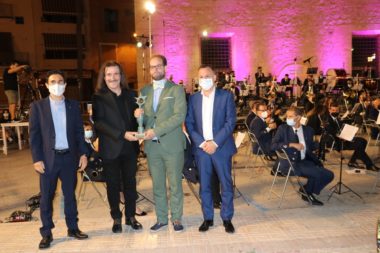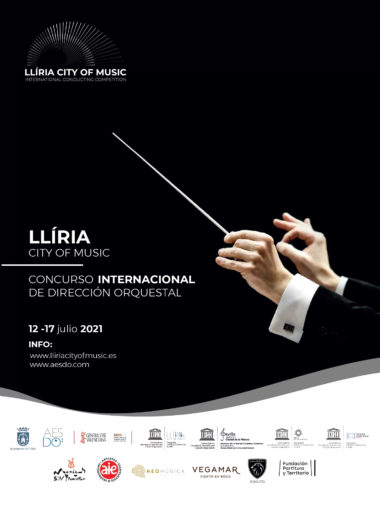Llíria
Spain
UNESCO City of Music
since 2019
Llíria is a Mediterranean city located 25 km northwest of València (Spain). It has about 23,000 inhabitants and it is connected to an international airport and port in less than 30 minutes. Historically, the city stands out because it was one of the most important Iberian cities (Edeta) in Spain, which is attested by its imposing legacy. Later, it was a Roman city, with findings that can be seen in its current streets (Oracular Temple and Roman Baths, Mausoleums). The Arab period was significant as well (Arab Baths). In 1238 the first church was built (Iglesia de la Sangre), following the conquest of the Christian king Jaime I. Other Renaissance and Baroque buildings complete Llíria’s extensive heritage.
Music is an essential part of the Llirian identity and the feature for which the city is nationally and internationally recognized, particularly regarding formation, being one of the Spanish municipalities with the highest percentage of citizens with musical studies. Llíria has four centres where official music studies are offered. On the one hand, the prestigious private schools Banda Primitiva and Unió Musical provide elementary music training. In 1997 a significant educational initiative took place, which was a pioneer at the national level: the creation of the first teaching centre in Spain that integrated music into primary studies, the CIEM Unió Musical. The professional level is taught at the public Conservatory. During the last 25 years, this institution has trained more than 3,000 students (53% women).
In terms of lifelong learning, the musical societies of the Unió Musical and the Primitiva have a steady offer of advanced training for graduate and postgraduate students and for professional musicians.
The Orquestra de Plectre “El Micalet”, the Agrupación Musical Edetana “Vicente Giménez” and the Band UDP – a pioneer in being composed entirely by retirees – complete the creative Edetanian musical proposal.
Llíria’s reputation as a musical city dates back to the 3rd/2nd century BC. This is evidenced by the Iberian ceramic vessels decorated with musicians and dancers found in the Tossal de Sant Miquel (archaeological site). In the Mudejar coffered ceiling of the Iglesia de La Sang (13th century), almost twenty different medieval instruments may be noted. In 2019, it was celebrated the bicentenary of the creation of the oldest civil band in Spain, the Banda Primitiva, a seed of the important band movement of the population, which in turn has counted on one of the most awarded civil bands at both national and international levels since 1903: the Unió Musical. Because music is more than a tradition in Llíria; it is a social reality, a lifestyle and a means to live. In recent years, Llíria’s City Council has opted for the implementation of development policies that take into account the protection and the promotion of culture and heritage, since they are conceived as an economic and social engine for the city and an incentive for urban regeneration. Singular initiatives of great prestige have been carried out, in which music merges with the rich historical heritage of the city – with 30 spaces to enjoy live performances –, linked to the 2030 Agenda of the United Nations and its 17 Sustainable Development Goals, with which Llíria is seriously committed.




